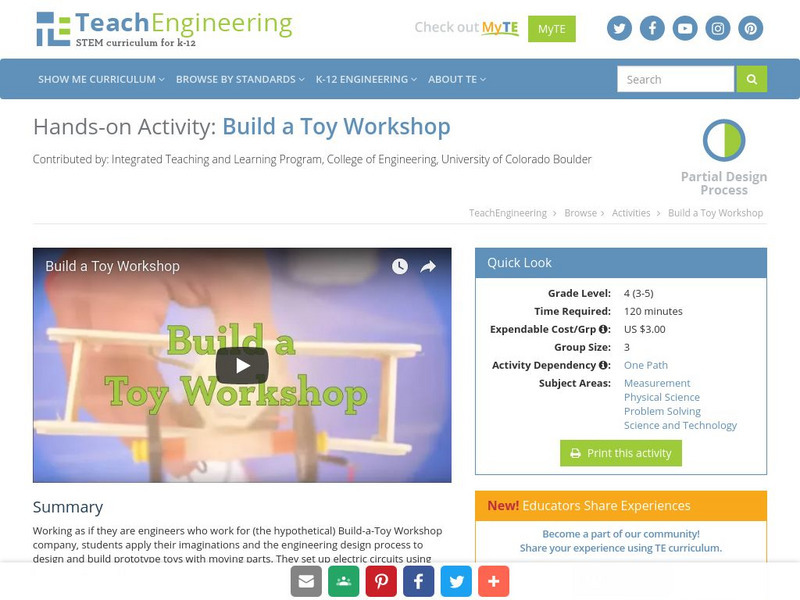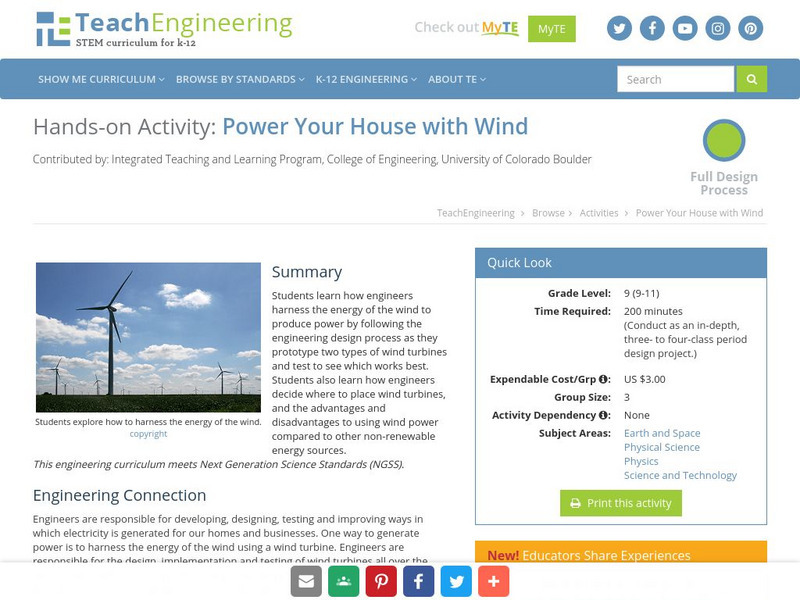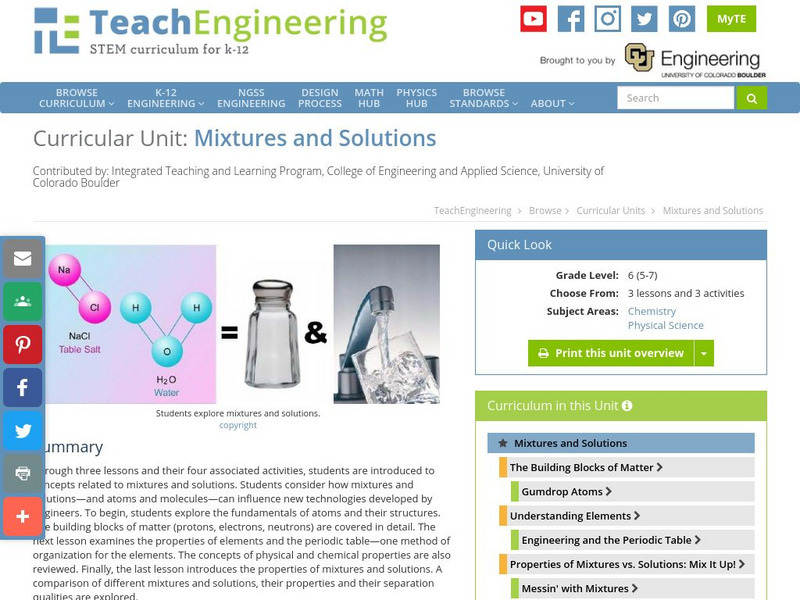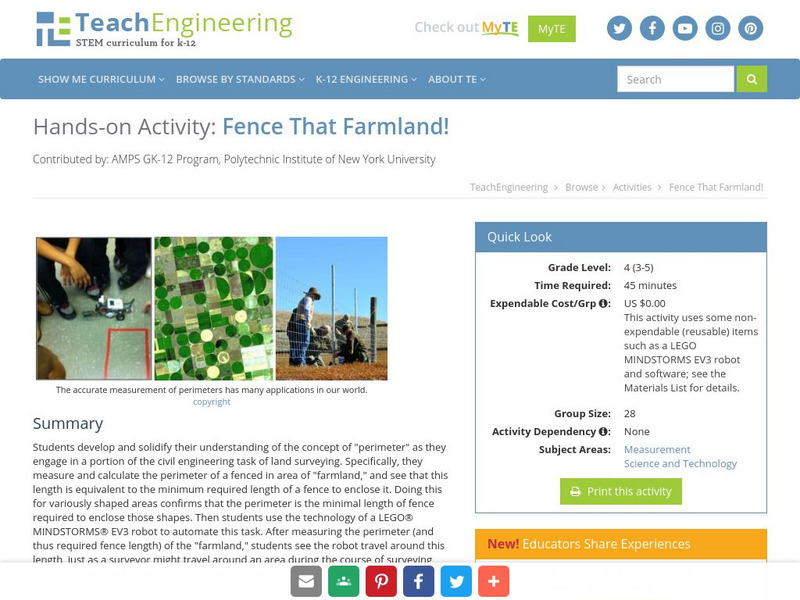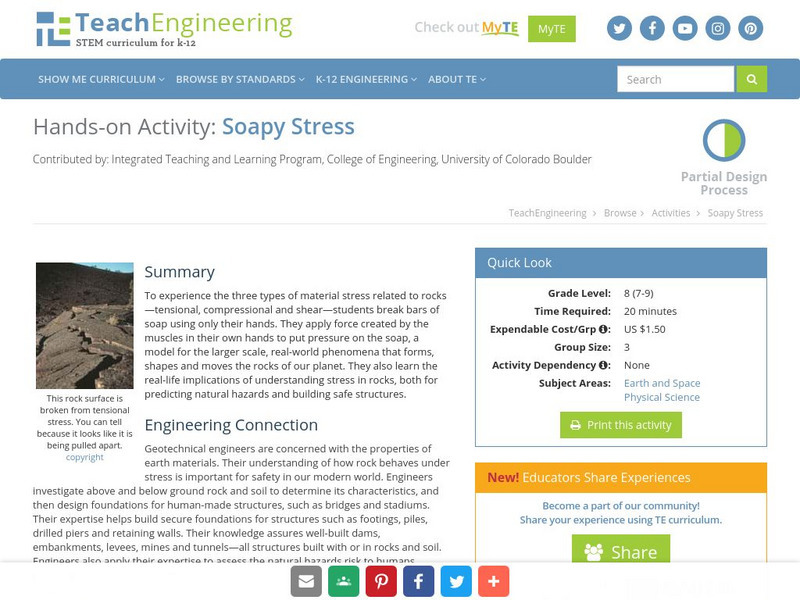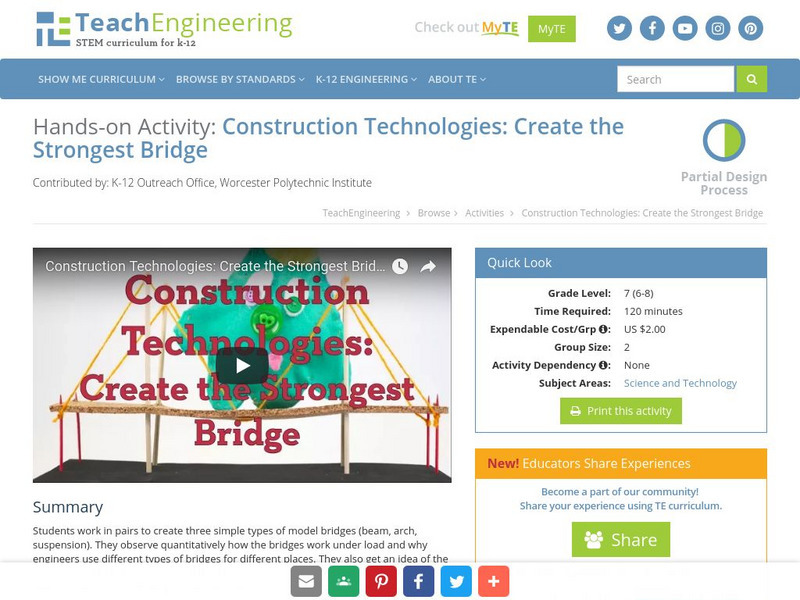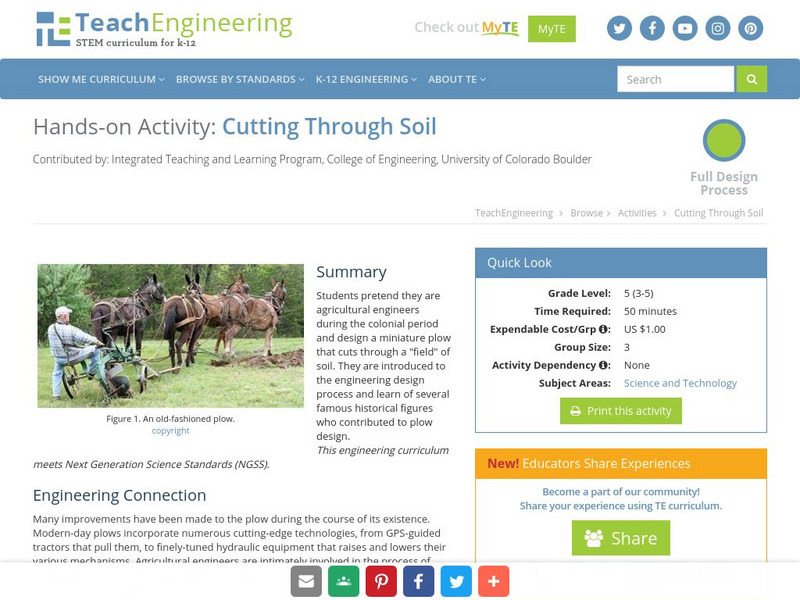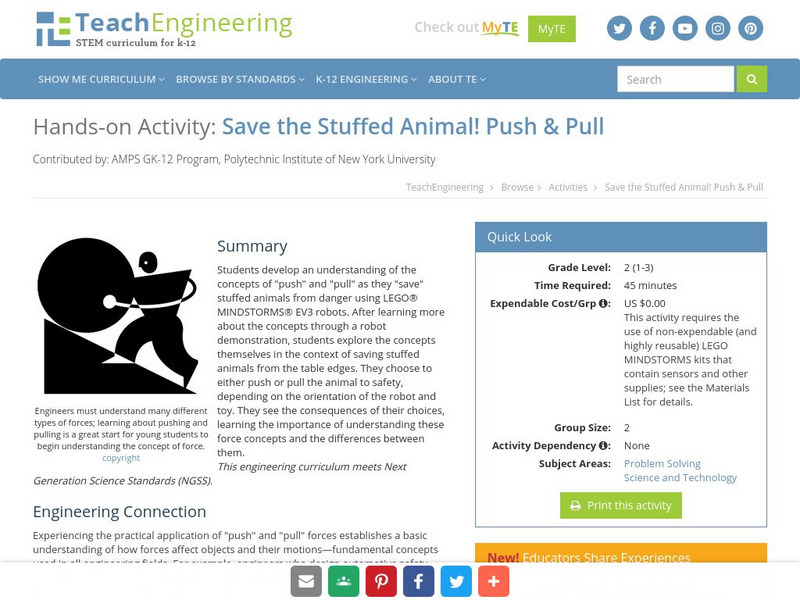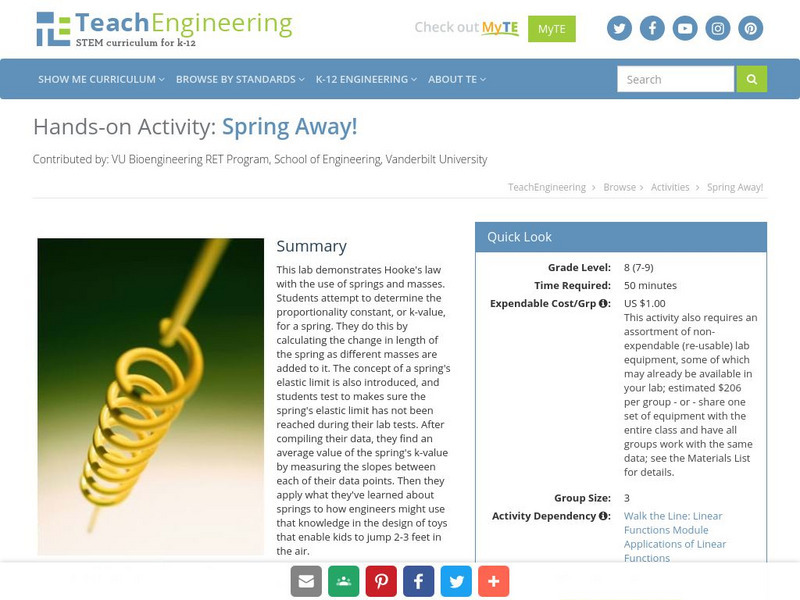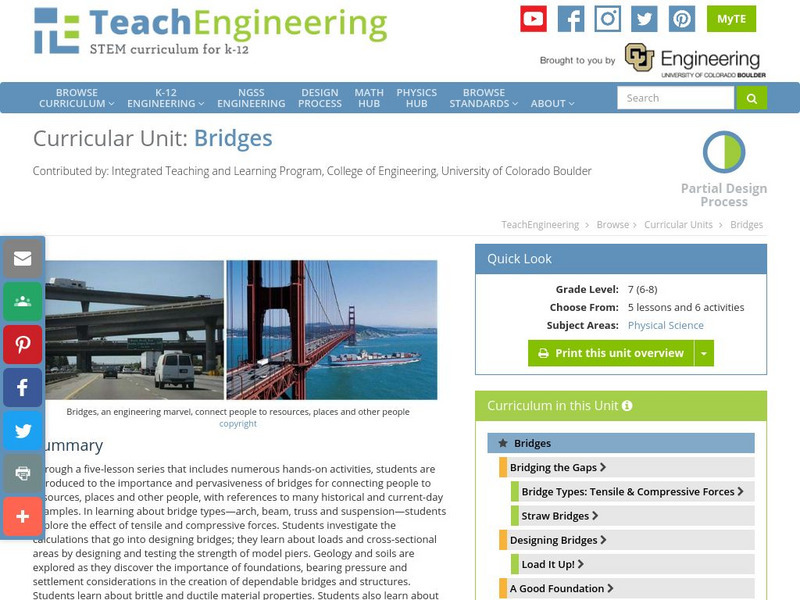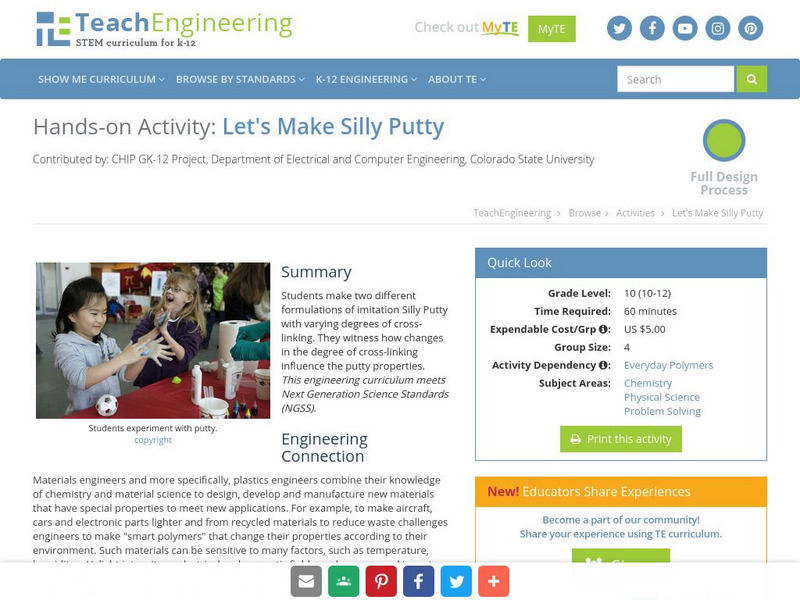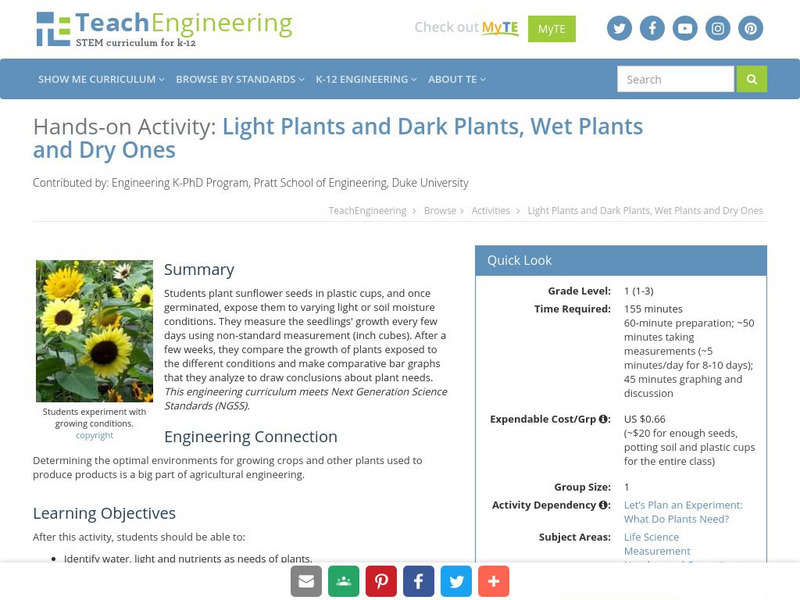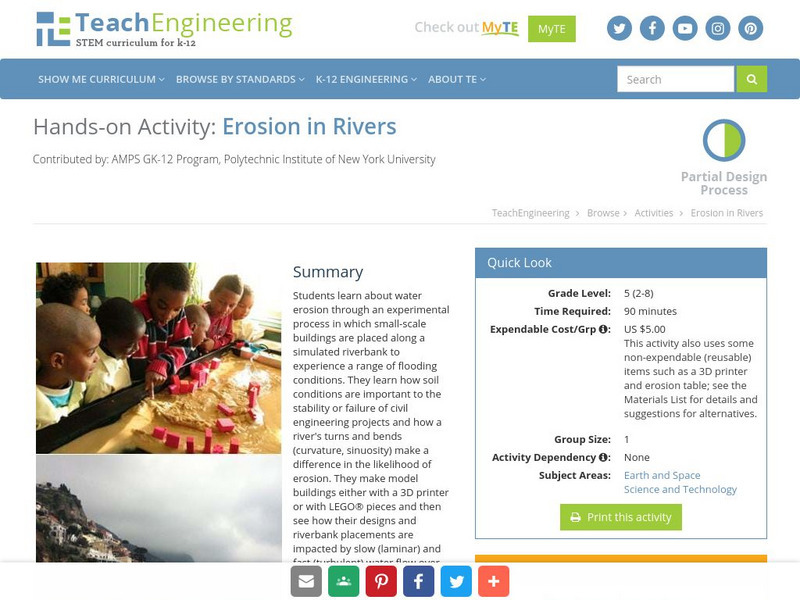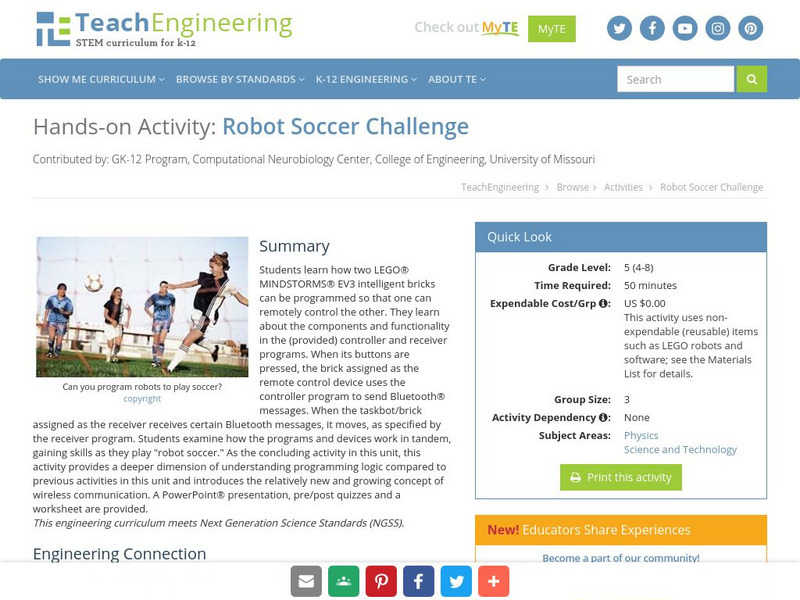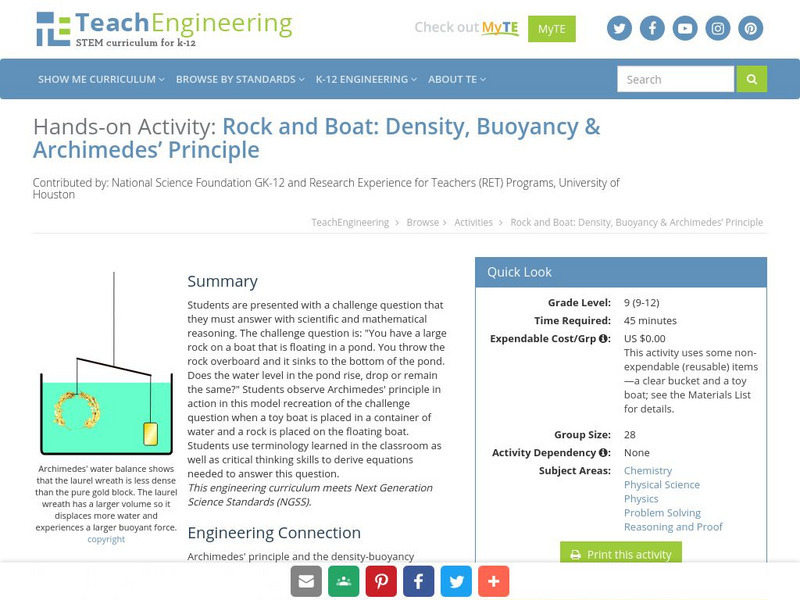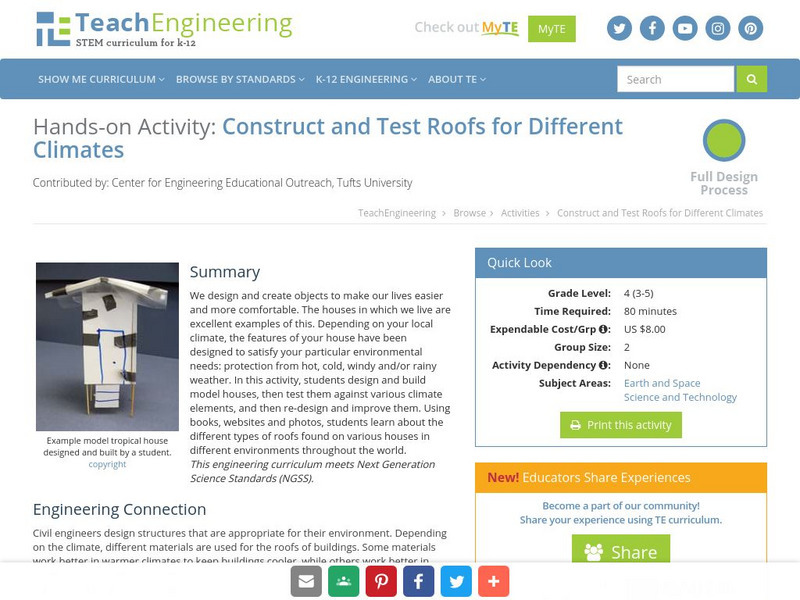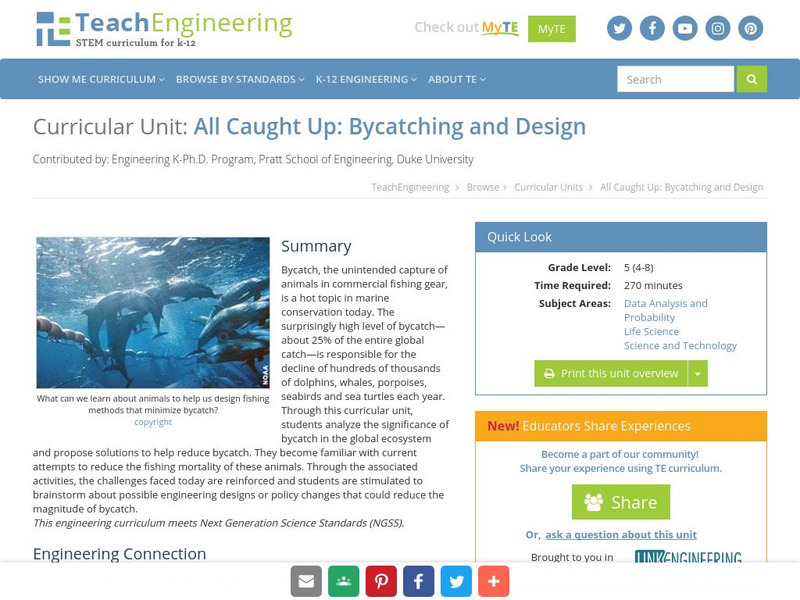Hi, what do you want to do?
TeachEngineering
Teach Engineering: Requirements & Constraints: Making Model Parking Garages
The difference between an architect and an engineer is sometimes confusing because their roles in building design can be similar. Students experience a bit of both professions by following a set of requirements and meeting given...
TeachEngineering
Teach Engineering: Build a Toy Workshop
Working as if they are engineers who work for (the hypothetical) Build-a-Toy Workshop company, students apply their imaginations and the engineering design process to design and build prototype toys with moving parts. They set up...
TeachEngineering
Teach Engineering: Engineering in Reverse!
Students learn about the process of reverse engineering and how this technique is used to improve upon technology. Students analyze push-toys and draw diagrams of the predicted mechanisms inside the toys. Then, they disassemble the toys...
TeachEngineering
Teach Engineering: Power Your House With Wind
Students learn how engineers harness the energy of the wind to produce power by following the engineering design process as they prototype two types of wind turbines and test to see which works best. Students also learn how engineers...
TeachEngineering
Teach Engineering: Energy of Motion
By taking a look at the energy of motion all around us, students learn about the types of energy and their characteristics. They first learn about the two simplest forms of mechanical energy: kinetic and potential energy, as illustrated...
TeachEngineering
Teach Engineering: Mixtures and Solutions
This unit covers introductory concepts of mixtures and solutions. Students think about how mixtures and solutions, and atoms and molecules can influence new technologies developed by engineers. The first lesson explores the fundamentals...
TeachEngineering
Teach Engineering: Earthquakes Living Lab: The Theory of Plate Tectonics
Working in pairs, students think like engineers and connect what they understand about the theory of plate tectonics to the design of structures for earthquake-resistance.
TeachEngineering
Teach Engineering: Fence That Farmland!
Students develop and solidify their understanding of the concept of perimeter as they engage in a portion of the civil engineering task of land surveying, using the technology of a LEGO MINDSTORMS NXT robot to automate this task.
TeachEngineering
Teach Engineering: Soapy Stress
To experience the three types of material stress related to rocks - tensional, compressional and shear - students break bars of soap using only their hands. They apply force created by the muscles in their own hands to put pressure on...
TeachEngineering
Teach Engineering: Construction Technologies: Construct the Strongest Bridge
In this activity, students will work in pairs to create three simple types of bridges. They will observe quantitatively how the bridges work under load and why engineers use different types of bridges for different places. They also will...
TeachEngineering
Teach Engineering: Seismic Waves: How Earthquakes Move the Earth
Students learn about the types of seismic waves produced by earthquakes and how they move the Earth. The dangers of earthquakes are presented as well as the necessity for engineers to design structures for earthquake-prone areas that are...
TeachEngineering
Teach Engineering: Cutting Through Soil
Students pretend they are agricultural engineers during the colonial period and design a miniature plow that cuts through a "field" of soil. They are introduced to the engineering design process and learn of several famous historical...
TeachEngineering
Teach Engineering: Projectile Motion
Students are introduced to the concept of projectile motion, of which they are often familiar from life experiences,such as playing sports such as basketball or baseball, even though they may not understand the physics involved. Students...
TeachEngineering
Teach Engineering: Save the Stuffed Animal! Push & Pull
Students develop an understanding of the concepts of "push" and "pull" as they "save" stuffed animals from danger using LEGO MINDSTORMS NXT robots. After learning more about the concepts through a robot demonstration, students explore...
TeachEngineering
Teach Engineering: Spring Away!
This lab demonstrates Hooke's Law with the use of springs and masses. Students attempt to determine the proportionality constant, or k-value, for a spring. They do this by calculating the change in length of the spring as different...
TeachEngineering
Teach Engineering: Natural Frequency and Buildings
Students learn about frequency and period, particularly natural frequency using springs. They learn that the natural frequency of a system depends on two things: the stiffness and mass of the system. Students see how the natural...
TeachEngineering
Teach Engineering: Bridges
Through a five-lesson series that includes numerous hands-on activities, students are introduced to the importance and pervasiveness of bridges for connecting people to resources, places and other people, with references to many...
TeachEngineering
Teach Engineering: Let's Make Silly Putty
Students make two different formulations of imitation Silly Putty with varying degrees of cross-linking. They witness how changes in the degree of cross-linking influence the putty properties.
TeachEngineering
Teach Engineering: Light Plants and Dark Plants, Wet Plants and Dry Ones
Students plant sunflower seeds in plastic cups, and once germinated, these are exposed to different conditions of light levels and/or soil moisture contents. During exposure of the plants to these different conditions, students measure...
TeachEngineering
Teach Engineering: Erosion in Rivers
Students learn about water erosion through an experimental process in which small-scale buildings are placed along a simulated riverbank to experience a range of flooding conditions. They make model buildings either with a 3D printer or...
TeachEngineering
Teach Engineering: Robot Soccer Challenge
Students learn how two LEGO MINDSTORMS NXT intelligent bricks can be programmed so that one can remotely control the other. They learn about the components and functionality in the controller and receiver programs
TeachEngineering
Teach Engineering: Rock and Boat
Students observe Archimedes' principle in action in this challenge where a toy boat is placed in a container of water and a rock is placed on the floating boat. Students must explain why the water level rises/falls/stays the same based...
TeachEngineering
Teach Engineering: Construct and Test Roofs for Different Climates
We design and create objects to make our lives easier and more comfortable. The houses in which we live are an excellent example of this. Depending on your local climate, the features of your house will be different to satisfy your...
TeachEngineering
Teach Engineering: All Caught Up: Bycatching and Design
Bycatch, the unintended capture of animals in commercial fishing gear, is one of the hottest topics in marine conservation today. About 25% of the entire global catch is bycatch. This surprisingly high level of bycatch is responsible for...






